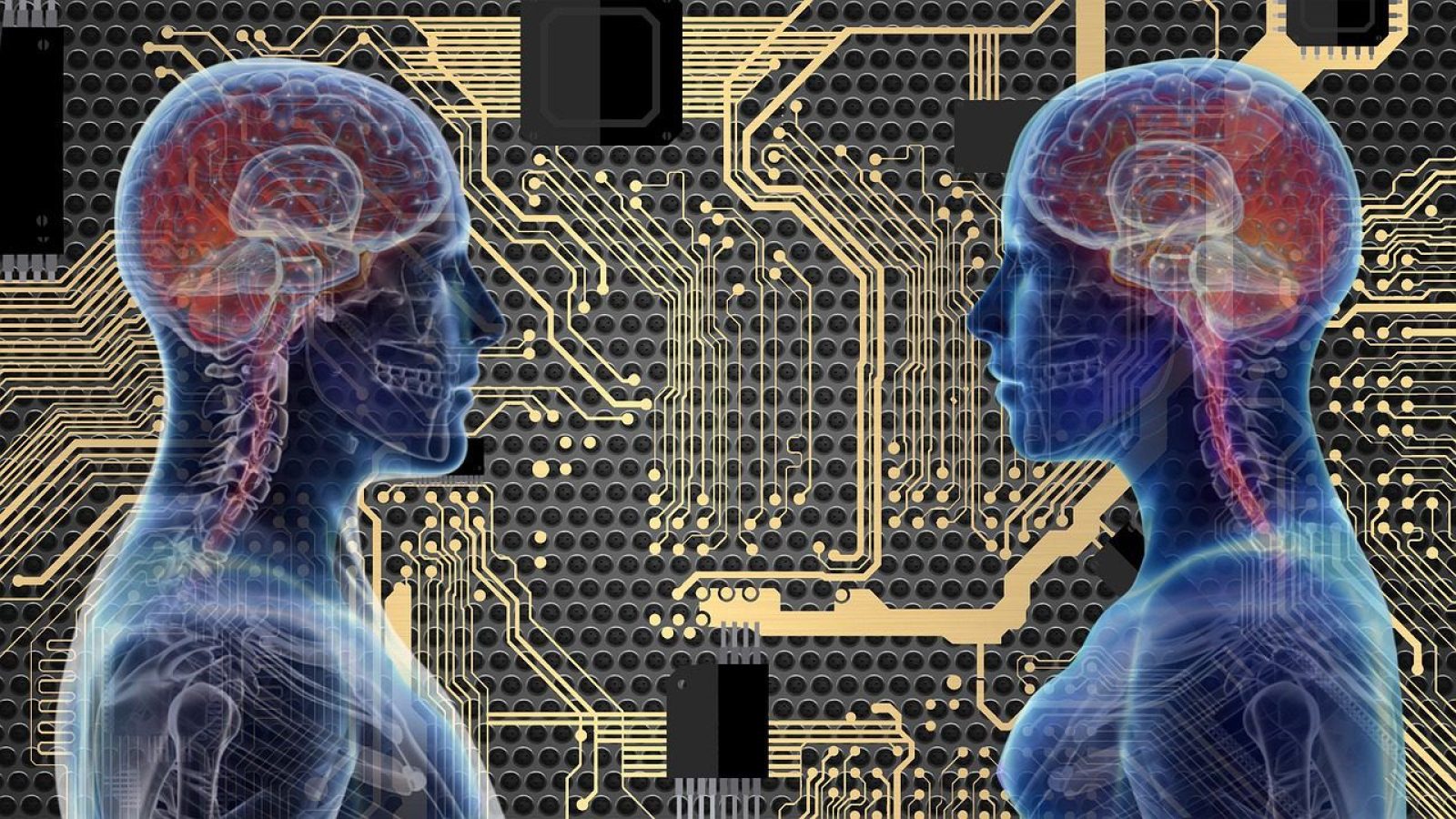Blackrock Neurotech, a biotech company based in Salt Lake City, has reportedly inserted brain chips into about 50 humans.
The company says they’re using brain implants in hopes to cure paralysis, blindness, deafness, and even depression.
The chip, called ‘NeuroPort Array,’ was reportedly first used to treat paralyzed patients in 2004.
This Utah biotech company has already implanted brain chips in 50 people https://t.co/COT9nTxwKj pic.twitter.com/nBrqXyXk8l
— Daily Mail Online (@MailOnline) April 30, 2023
Daily Mail reported:
The chip — known as NeuroPort Array — allow people to control robotic arms and wheelchairs, play video games and even feel sensations.
It works by using nearly 100 microneedles that attach to the brain and read electrical signals produced by someone’s thoughts. More than three dozen people have so far received it.
The device was first implanted in a human in 2004. Company leaders hope to bring it to market soon, announcing in 2021 they aimed for the next year.
ADVERTISEMENTTech mogul Elon Musk has also launched similar plans with Neurolink, an implantable device he hopes can help similar groups.
Mr Musk’s initial plans were deterred by regulators earlier this year, who rejected a bid to trial his implant in humans.
‘We are the only company with direct-brain BCI implants in humans,’ Marcus Gerhardt, Blackrock’s co-founder, told DailyMail.com.
Blackrock Neurotech announced in 2021:
Blackrock Neurotech, the world’s leading platform for brain-computer interface (BCI) technology and manufacturing, has closed a $10 million financing round, led by Christian Angermayer’s re. Mind Capital with participation from Peter Thiel, German entrepreneur Tim Sievers, and Sorenson Impact’s University Venture Fund II.
Christian Angermayer and Jan Hardorp of re. Mind, as well as Tim Sievers will join the Blackrock Neurotech Board of Directors. The funding will be used to further expand the number of programs on the Blackrock platform – including clinical studies and cutting-edge research – and to continue development of its technology platform to maintain a leading position in the market.
In addition to the investment announcement, Blackrock today will begin using the brand Blackrock Neurotech to better reflect the company’s longstanding focus on neurotechnology and BCI. The company will keep the Blackrock Microsystems brand in place for continuity with its thriving research community.
“Blackrock is at the forefront of making BCI in humans a reality,” said Marcus Gerhardt, CEO and co-founder of Blackrock Neurotech. “Dozens of human patients are currently using our implants and technology to accomplish things directly with their minds that were unimaginable ten years ago. We have spent over a decade developing our technology with several hundred of the world’s leading research institutions and over 20 clinical partner centers.”
CNBC noted:
Andrew Jackson, professor of neural interfaces at Newcastle University, told CNBC that Neuralink’s device can record more brain cell activity than Blackrock’s BCIs because it has more “channels” or recording sites.
ADVERTISEMENTNeuralink’s device records activity at multiple points along each of the flexible electrodes that are sewn into the brain by a surgical robot, Jackson said, while Blackrock’s BCIs only have a single recording site at the tip of each of their rigid silicon pronged electrodes.
Another thing to note is that Blackrock’s patient trials have involved wires coming through the skin. Both Neuralink and Blackrock Neurotech are now working on wireless devices.
Jackson said more is known about the overall performance of Blackrock’s technology than Neuralink’s, partly because the company has been around for longer.
“The main challenge (for Blackrock Neurotech) is how to translate from a business that mainly supplies electrode arrays to scientists working with animals into a commercially viable product for humans,” he said.
Patients who have had one of Blackrock’s devices installed have not had to pay as the procedures have all been part of clinical trials, which are often funded with millions of dollars.
Blackrock Neurotech eventually wants its devices to be distributed in the same way that pacemakers and cochlear implants are. “We’re aiming for a commercially available device next year, at the latest,” said Gerhardt.
Blackrock Neurotech claimed in 2021 that their technology was further along than Neuralink and they used the implants on patients in the United States, Europe, and China.
Silicon Angle noted:
Analyst Holger Mueller of Constellation Research Inc. told SiliconANGLE that human-machine communication is one of the most promising areas of artificial intelligence research as it has the potential to unchain humans from traditional input mechanisms like keyboards, pointing devices and touchscreens.
“While voice controls are getting more popular, they are still slower than thoughts,” Mueller mused. “Whichever companies can come up with the first brain-to-machine interface will change the human relationship with computing in a way that’s more profound than anything since the invention of the QWERTY keyboard. So it’s good to see startups like Blackrock Neurotech getting capital from prominent investors that have succeeded in the past.”
Blackrock said that during its human trials, its devices were connected to patients via wires that passed through the skin. However, the company is working on less invasive wireless devices too. Eventually, the company says, its devices can be widely distributed in the same way that pacemakers are today.
“We’re aiming for a commercially available device next year, at the latest,” Gerhardt said.




Join the conversation!
Please share your thoughts about this article below. We value your opinions, and would love to see you add to the discussion!